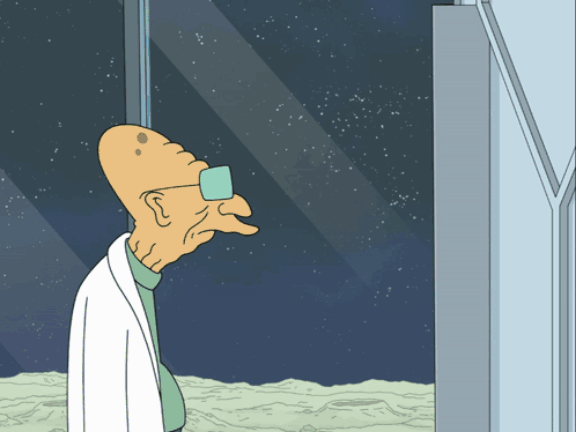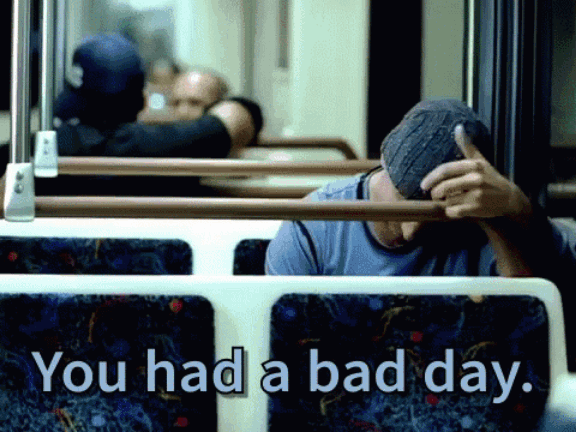Recently, I’ve noticed a lot of ADHD creators using the term “dissociating” to describe our tendency to day dream without consciously realizing that we’re doing so, and our general need to detach to recharge our minds. This means we might come out of a day dream only to realize we’ve missed a whole chunk of conversation, the last 3 minutes of the tv show we’re watching, or the names of the people we just met at a networking event.

But here’s the thing, that’s not the only way to dissociate and by not understanding all the ways dissociation is experienced, you leave folks out of the conversation.
Better Health Australia defines dissociation as, “A mental process where a person disconnects from their thoughts, feelings, memories or sense of identity.” Mind.org describes the symptoms of dissociation as, “you may feel disconnected from yourself and the world around you. For example, you may feel detached from your body or feel as though the world around you is unreal… Dissociation is one way the mind copes with too much stress, such as during a traumatic event.”
Yes, day dreaming is a common way to experience dissociation. But dissociation is also so much more nuanced than that!
I’ll cut right to it – In 2019 I was hit by a car. I looked multiple times before I crossed the street. I made sure the walk light was on. I waited for a few impatient cars to turn and pass in front of me before heading into the crosswalk. But as careful as I was, I still got hit.
For months afterwards I was understandably terrified to cross streets in downtown Portland. I had done everything right, so why wouldn’t it happen again?
I spent many months avoiding going out at night when cars were harder to see and would only go if my partner escorted me.
I still make detours to avoid crosswalks like the one where I was hit. I still feel the need to keep my eye on every single car near me.
It’s only been in the last year that I’ve finally started to feel more like myself. But even so, last year I experienced something strange.
Once again, I found myself waiting to cross a busy street in downtown Portland. I waited until the walk sign signaled for me to cross, I took a single step forward – and was almost run over by someone on an electric scooter, riding on the sidewalk. If I hadn’t reacted as quickly as I had, they would have ran into me.
It was such a close call. Too close of a call.

I felt like the traffic gods were toying with me. I also felt so incredibly lucky as I safely crossed the street. But once I had crossed and turned a corner, as soon as I was alone, I broke down sobbing.
The incident brought back too many feelings and memories of when I had been hit, memories I had worked so hard to bury. I once again felt entirely powerless over my personal safety. It felt incredibly unfair. It seemed as hard as I tried to do the right thing, make sure I was safe, I continued to dance with death.
Plus, things jumping out in surprise at you is never a recipe for fun when you’re Autistic. We like everything controlled and in its predictable, assigned place.
I put myself back together and continued on my way to the grocery store where I had been headed. I thought I was in the clear. I thought I had addressed and processed my emotions. But that night it hit me. Pun intended?
I was cleaning my bedroom, folding clothes, when I realized I was seeing images in my mind that I wasn’t actively thinking into existence. There were just random images popping up, like lost clips of movies I didn’t remember watching. Most of what I saw was abstract, almost like a macro photo zoomed in so close it was hard to tell what I was looking at.

Each of the images was accompanied by an emotion. I would feel like I was remembering a happy memory, but it was just out of reach because I couldn’t quite bring the memory into focus. My inability to connect context to the images and associated feelings, to make sense of them, caused me to panic. And as soon as I began to panic, the emotions latched on and sped away like a runaway train. I suddenly found myself sobbing, but having no idea why.
I was so scared my brain was broken.
I would try to think about:
• why this was happening
• what the memories really were
• why I was sad
• anything… anything at all
But I simply could not think without new strange images appearing and confusing me further. It was like the thinking part of my brain had been turned off, and I was left all alone without guidance. I felt untethered from the very thing that made me me, my thoughts, my memories, my mind.
I had the strange sensation that my mind was like a balloon, and if I tried to think too hard, I would foolishly, forgetfully let go of that balloon, and my mind would float away, never to be seen again.
When I later described this unsettling experience to my therapist, she said that I had likely experienced a dissociative trauma response, similar to what folks with PTSD go through, because of the close call with the scooter. I had already lived through the traumatic event of being hit by a car, and those memories had resurfaced that day. My mind had fled in horror from the trauma, leaving me alone, and confused.
She described it as my brain’s way of “taking a break” because the stress had become too much. That made a lot of sense to me.

I went on to have another similar experience not long after. That time, knowing why it was happening, made it easier to get through. But I also felt such an immense feeling of betrayal that my brain had “ditched me.” It had given up – my brain didn’t want to deal with me and my silly problems. So it had left to take a nap like an overworked parent dealing with a fussy child.
I’ve since tried to describe my experience with trauma-related dissociation to my friends and understandably they don’t get it.

Then recently dissociation started trending on social media in the ADHD community and I became hopeful that my experience would become more common knowledge. But because dissociation has only been described in this ADHD day dreamy kind of way, my friends began to think they understood, but they still did not.
Instead I felt misunderstood in an entirely new way in which people unintentionally devalued and overlooked the experience of those who have gone through this trauma-infused form of dissociation.
Something similar has happened to the term “trauma” over the last handful of years. It also blew up on social media, and suddenly everyone was talking about their “trauma” and using the word to describe every bad thing that had happened to them. But it left folks who had survived deeply disturbing events feeling invisible.

I once heard Seerut Chawala, a psycotherapist in London, say that before you use the word “trauma” to describe your experience, think deeply about if it really was traumatic or just deeply bad. Trauma leaves you scarred, it impacts how you go about your daily life, it infiltrates your thoughts, it haunts your dreams.
It’s also true that neurodivergent folks more easily experience trauma.
Everyone’s experience with trauma and dissociation is different. When we use these umbrella terms like “dissociation” to describe just one way in which it is experienced, you not only incorrectly use the word, you exclude folks. And typically when we’re talking about mental health openly, what we’re actually trying to do is make the world a more inclusive place. So don’t let your efforts go to waste!
To describe the dissociation I experienced as “day dreaming” is inaccurate and harmful. My experience was terrifying and so much deeper. Unfortunately, instead of social media accurately teaching folks about dissociation, it actually turned dissociation into a monolith.
Just as every ADHD person is different, everyone has different trauma and everyone’s experience with dissociation is unique.
So please, the next time your friend talks to you about how they were “dissociating the other day,” ask them how deep it was and what the experience was like. Make an effort to understand their unique experience.
